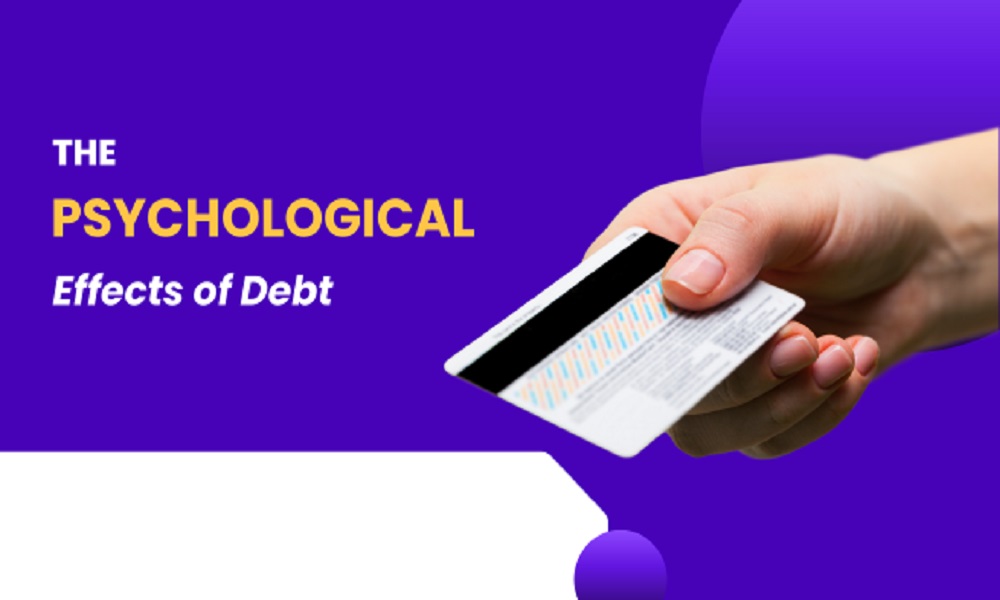Debt has been a common part of life for several people. We often talk about how loans affect our wealth creation approach. But we do not always think about how it affects our minds and feelings. I will help you understand how being in a state of borrowing can impact our mental health, our relationships, and even how we think and make decisions.
When you better grasp this concept, it helps. You are able to better cope with the stress of debt and know when to seek expert assistance.
Understanding the Vicious Cycle
[1] Anxiety and Depression
Often, the stress from overdue payments lasts for a long time. Thus, it can lead to more serious mental health issues like anxiety. You may constantly worry about paying bills. The fear of what might happen if you can’t pay can be traumatizing.
You may often seem uncertain about the future and it can make you feel anxious. This might show up as excessive worrying or manifest into trouble focusing. You may also undergo irritability or physical symptoms like a racing heart.
Research has found that people in debt are 3x more likely to have mental health problems compared to those without the repayment obligation. It’s also true that people with mental health issues are more likely to end up in debt. This will make a two-way relationship between borrowing and mental health.
[2] Impact on Self-Esteem and Identity
The responsibility of repaying loans can really affect how we see ourselves. In many societies, being financially successful is seen as important. So, when someone is neck-deep in debt, they might feel like a failure. Not doing timely repayments may seem not being good enough. Thus, some people might start to avoid friends and family because of this underlying state of emotion.
Loans can also be hard on young adults. Let us imagine you have student loans. This situation may impede further progress towards a rewarding career. You may feel like you are falling behind compared to your friends. This line of thinking can hurt your confidence further. The pressure of repaying money to lenders may also force you to make wrong decisions even though it does not sound convincing. This feeling of helplessness further harms your self-assurance.
[3] Strain on Relationships
The effects of debt often spread beyond just the person. It may impact their relationships with family and friends as well. Money trouble is a leading cause of arguments in marriages. The constant pressure of debt can lead to more fighting and communication breakdown.
In couples, different attitudes about money and debt can cause tension. One partner might feel burdened by the other’s spending habits or taking money on credit. All of this translates to blame and lack of trust. Such stress can also reduce intimacy and time spent together. This happens because people might work longer hours to manage payments.
Often, you may just feel embarrassed about your financial situation. Thus, you would avoid social activities and further erode a smooth relationship with a peer or family member.
Conclusion
Debt affects more than just our wallets. It can impact our mental health and relationships. It also affects how we think and make decisions. Understanding these effects is important for finding better ways to manage this money problem. The proposed solution needs to factor in both financial and mental well-being.
As borrowing becomes more common in society, it is crucial to know how to manage it properly. This will help you regain financial stability and improve quality of life. By recognizing how debt affects our minds, we can work towards a society where financial health and mental well-being go hand in hand.


 Understanding the Document Requirements When Filing Taxes
Understanding the Document Requirements When Filing Taxes  What are the best gift cards for subscription services?
What are the best gift cards for subscription services?  Different ways to pay for your plastic surgery procedure
Different ways to pay for your plastic surgery procedure  Benefits of Investing in Mid-Cap Funds
Benefits of Investing in Mid-Cap Funds  Why Funding Partnerships Demand Personal Guarantors and How A Funding Partnership Agency Can Help
Why Funding Partnerships Demand Personal Guarantors and How A Funding Partnership Agency Can Help  How to Avoid Common Financial Mistakes That Hurt Your Wealth
How to Avoid Common Financial Mistakes That Hurt Your Wealth  Bank Nifty Index and Best Demat Account Apps for Trading
Bank Nifty Index and Best Demat Account Apps for Trading  Essential Trading Tools Every Forex Trader Should Use in 2025
Essential Trading Tools Every Forex Trader Should Use in 2025  Why Estate Planning Service is Essential in Wealth Management
Why Estate Planning Service is Essential in Wealth Management 